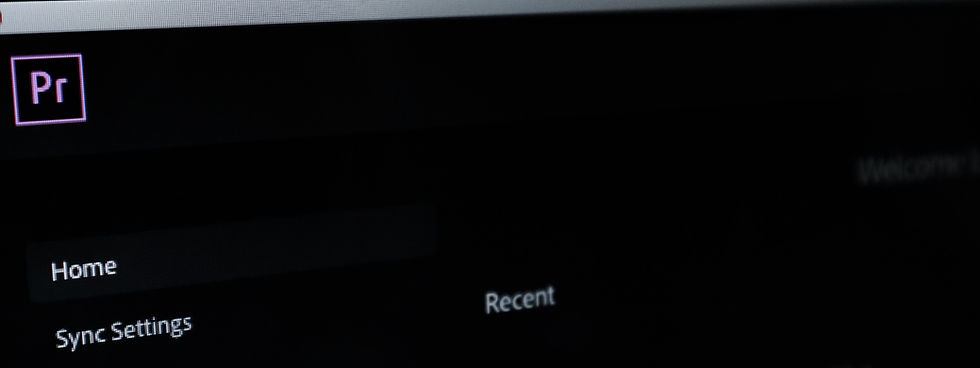The Price of Free: CapCut's New Terms of Service Raise Big Questions for Creators
- Paul Francis

- Jul 8, 2025
- 4 min read

Most people never read the terms of service. They're the digital equivalent of the small print on a credit card offer. Dry. Dense. Usually harmless. But every now and then, one of those boxes you tick without thinking hides something that matters.
CapCut, the hugely popular video editing app owned by ByteDance, quietly updated its terms of service in June. The new terms haven’t radically changed in structure, but their language has sparked widespread concern. Creators, influencers, journalists and casual users are now realising the cost of convenience might be their content, their voice, and even their face.
So what changed? And why does it matter?
CapCut Now Has the Right to Use Your Content, Forever
At the heart of the controversy is CapCut’s licence agreement. When you upload a video to their platform, even as a private draft, you are granting ByteDance and its affiliates a worldwide, royalty-free, irrevocable and perpetual right to use, edit, reproduce, distribute and monetise your content. This includes your username, your voice, and your likeness.
In short, they can do what they like with your video. Forever. And you cannot revoke that permission.
Critically, this applies not just to content published publicly but also to drafts or private videos stored in CapCut’s cloud. Even if you delete the file or your account, the licence remains in place. You still technically own your content, but they own the rights to do whatever they want with it.
This has understandably caused alarm among creators. A vlog you filmed for friends, a marketing draft, or a clip of your child dancing in the living room could, in theory, be used in an advert, a training dataset, or promotional material with no payment or warning.
The Growing Frustration with ‘Freemium’
Beyond the terms themselves, CapCut has also come under fire for its monetisation strategy. Features that were once free, like slow motion effects, watermark-free exports and audio extraction, are now locked behind a Pro subscription.
Reddit forums are filled with posts from frustrated users. One wrote, "You literally cannot do anything on it anymore, everything requires a subscription #boycott_capcut." Others have vented about automatic updates that break their workflows or remove tools they relied on.
CapCut was once the darling of quick, quality video editing. Now, many feel it has shifted from a useful free tool to a pay-to-play model without warning. That change has made some users feel as though they were tricked into building their content libraries on a platform that no longer respects their creative control.
Who Is Most Affected?
The impact is not the same for everyone. Here are three groups most at risk:
1. Content Creators and InfluencersAnyone uploading original content to CapCut risks losing control over how that content is used. That includes voiceovers, music, video clips and personal footage. A brand image carefully curated over years could be diluted or repurposed without input or approval.
2. Journalists and Documentary FilmmakersThose working with sensitive material or vulnerable subjects may be unknowingly placing source material into the hands of a third party. CapCut’s terms allow them to retain copies of content and distribute them freely. For journalists working under embargo or dealing with whistle-blowers, this is a serious threat to trust and ethics.
3. Small Businesses and CharitiesMany organisations use CapCut to produce promotional videos, explainers, and behind-the-scenes content. If those assets are uploaded to CapCut’s servers, they may be reused, reshaped or monetised elsewhere. This undermines brand control and could expose sensitive internal material.
Safer Alternatives for Creators

If you are reconsidering your use of CapCut, here are some alternatives that offer more transparency or control:
DaVinci Resolve: A professional-grade editor with a free version offering extensive features and no cloud tie-ins.
Adobe Premiere Pro: Paid, but widely trusted and industry standard.
Final Cut Pro: Ideal for Mac users who want full control over local files.
VN Video Editor: A popular mobile alternative with fewer strings attached.
Openshot: A free, open-source tool for those who prefer editing offline.
Shotcut: Another open-source video editor with advanced features and no automatic cloud storage.
A Wider Trend of Terms That Take More Than They Give
CapCut is not alone. Increasingly, apps and platforms are granting themselves sweeping rights over user-generated content. TikTok, also owned by ByteDance, includes similar language in its terms. Meta’s platforms have long included provisions that allow for the reuse and promotion of posted material. Even Zoom caused controversy in 2023 after suggesting it could use video calls to train AI.
These trends suggest a growing normalisation of terms that put user control second to corporate interest. The technology is free, but your content becomes the price.
The Lesson? Read Before You Click
We live in an age where convenience and creativity are closely tied to platforms we do not control. CapCut’s updated terms of service are not necessarily unusual—but they should be a wake-up call. If you value your content, your privacy, or your brand, it may be time to check those terms before clicking ‘Accept’.
Because in the world of digital creation, what’s yours might not stay yours for long.







